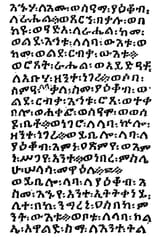>>24611484
You could just as easily say anything at all if you don't care about what's true or reasonable. Maybe Wheelock's isn't enough, and he needs also to work through Moreland & Fleischer simultaneously to fill up what is lacking in Wheelock's. And why stop at three textbooks when ten could be even better? This is not a serious line of argument.
Does the posted in this post sound like someone who's problem is not having enough resources or someone who lacks discipline and regimen?
>>24610106
They are flitting from one thing to the next without making any progress, and now they're in chapter 1 of Familia Romana doubting what they should do because they're not sure if they understand why there's an "ā" in "in Italiā."
Such a person should pick one textbook, and develop a regular habit of working and progressing through that one textbook before they start adding on auxiliary resources or activities. This advice applies to most people. People have jobs, spouses, children, other hobbies that don't allow them to devote unlimited time and energy to learning a language. If someone has a half hour or an hour per day that they can reliably devote to studying Latin, and they want to split their time between two different textbooks, they are necessarily going to do a worse job and make slower progress in both textbooks than they would in a single textbook, and it's not guaranteed that the retarded progress in both adds up to more focused progress in one. I hate to be this poster, but did you work through LLPSI and Wheelock's at the same time, and under what circumstances did you do so?
Finally your "danger" is not a real problem. The poster here didn't seem to be aware of the Neumann "Companion" or "Latine Disco." Maybe it would be more sensible to try using one of these student's manuals with LLPSI before jumping to the conclusion that he cannotadequately understand the grammar taught in LLPSI without simultaneously studying and working through the lessons from Wheelock's. Besides the student's manuals, the student could also try consulting an actual Latin grammar (
https://dcc.dickinson.edu/grammar/latin/alphabet), asking in an online forum or chatroom, and these days, you probably could even "ask ChatGPT," as they say, for quite a lot.


























